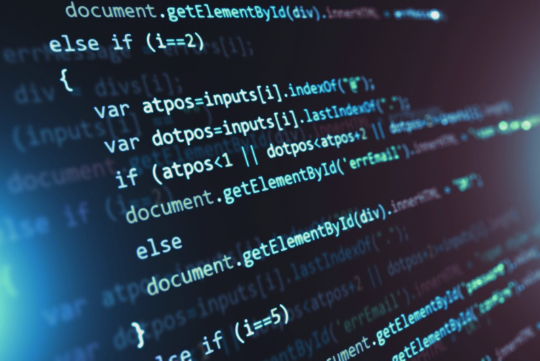
AI has arrived in programming, and it’s making a splash. There’s been a significant rise in AI coding assistants, with investment in the field totalling $906 million between January 2023 and August 2024.
We’re also seeing an important debate about what impact this change will have on the field, with skepticism among industry-leaders questioning whether or not software developers will be needed in programming’s new era.
“This is an extraordinarily dynamic time, one that is potentially on par with the productivity accelerations seen during the Industrial Revolution, and it seems clear that the business process of software development and delivery will be changed forever,” says Derek Holt CEO of Digital.ai.
AI Coding Agents Will Increase Productivity
Soon, AI agents will work autonomously, taking development tasks and returning complete results using agentic workflows. This could have massive implications for productivity and efficiency.
Andy Jassy, the CEO of Amazon, wrote that its GenAI assistant, Amazon Q Developer, provided the company with an estimated $260 million in annual efficiency gains by streamlining software upgrades in enterprise settings.
But to Adir Ben-Yehuda, CEO of AutonomyAI, it means much more than a revenue boost. “Context-based coding agents will shift the focus from daily coding tasks to business logic and innovation. This is a gamechanger, redirecting software development teams to be more focused on R&D and business strategy. It also promises to speed up code velocity, driving faster development cycles and shifting innovation up a gear,” explained Ben-Yehuda in an interview.
Code Maintenance and Optimization Will Shift to Proactive
Autonomous agents hold the potential to revolutionize both maintenance and optimization for code that’s already in production. AI tools can crunch data to predict where bugs will surface and then proactively fix them before they become troublesome, instead of waiting for them to appear and then hunting for root causes.
At the same time, AI agents can continuously monitor code and refactor it as necessary, ensuring that it remains relevant and effective even as technology evolves and the operating circumstances change. The net result will be software systems that are more resilient and reliable, as well as saving time and hassle for software engineers.
Natural Language Programming Will Appear
The widespread practical applications of AI are colliding with a growing interest in making programming more accessible to line-of-business users. Together, they are driving the advent of natural language programming, in which users write code in regular language and AI solutions translate their instructions into executable code.
This comes alongside a surge in AI coding assistants, which can understand your goals for a project and make suggestions, correct errors, and recommend improvements. It means that software development is becoming democratized, empowering more people to create customized applications and bringing programming into more domains and use cases.
“Large language models take this abstraction one step further: they allow us to represent code (and anything else generative AI can produce) in the form of natural language,” says Joseph Barron, full-stack software engineer at the Art of Problem Solving. “It’s not far-fetched to imagine Sam Altman’s prediction of a one-person unicorn becoming reality within the next decade,” he adds.
Domain-Specific Languages Will Become Reality
With AI in the picture, programming languages will evolve at higher speed to meet the emerging demands of new technologies and industries. We could soon see domain-specific languages (DSLs) that are tailored to specific industries or challenges, supporting highly specialized tools or abstractions for software for specialist contexts.
We are not far off from the arrival of self-learning adaptive languages that respond dynamically to how they are used, pulling in new features and optimizations in real time. Together, these trends could bring us personalized apps that are customized to individual needs, such as individualized healthcare or finance apps.
Interdisciplinary Work Will Increase
The growth of AI coding agents will free engineers for more strategic work. This comes at a time when tech is intersecting more with other disciplines, particularly biology, physics, neuroscience, and chemical sciences. The resultant collaboration between software developers and experts in other fields will drive innovation.
“The best AI coding tools don’t aim to replace developers. Instead, they streamline the way humans and AI work together, allowing developers to stay one step ahead by optimizing the coding process and providing developers the agency to focus on more stimulating and creative aspects of their work,” said Sulabh Soral, Chief AI Officer at Deloitte. “This means that developers can spend longer solving complex problems, designing innovative solutions, and ultimately, delivering more value through the products they build. “
For example, we could soon see a new level of personalized medical treatments and vaccines. Programmers could work with biologists and healthcare professionals to analyze a patient’s genetic data, predict their responses to various treatments, and identify the most effective drug combinations, creating healthcare that is more tailored than anything that has come before.
The Future is Bright for AI-Driven Development
The AI genie is out of the bottle, driving real change in the world of software development. While it’s inevitable for there to be some skepticism around the changes, it can be seen as a positive step forward, as AI is here to stay. It may take a few years, but we will soon see even more exciting new capabilities coming from the marriage of AI and software development.

